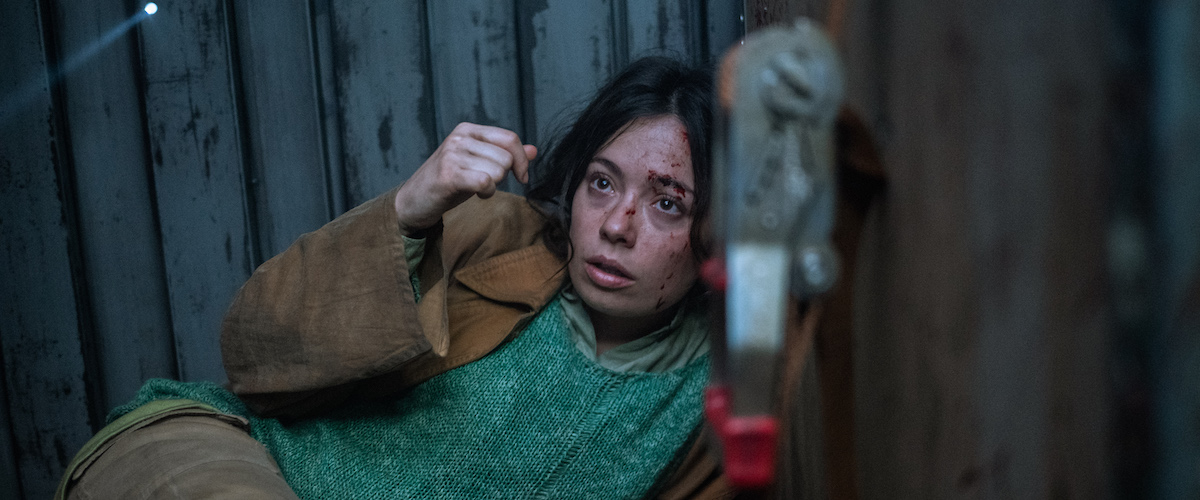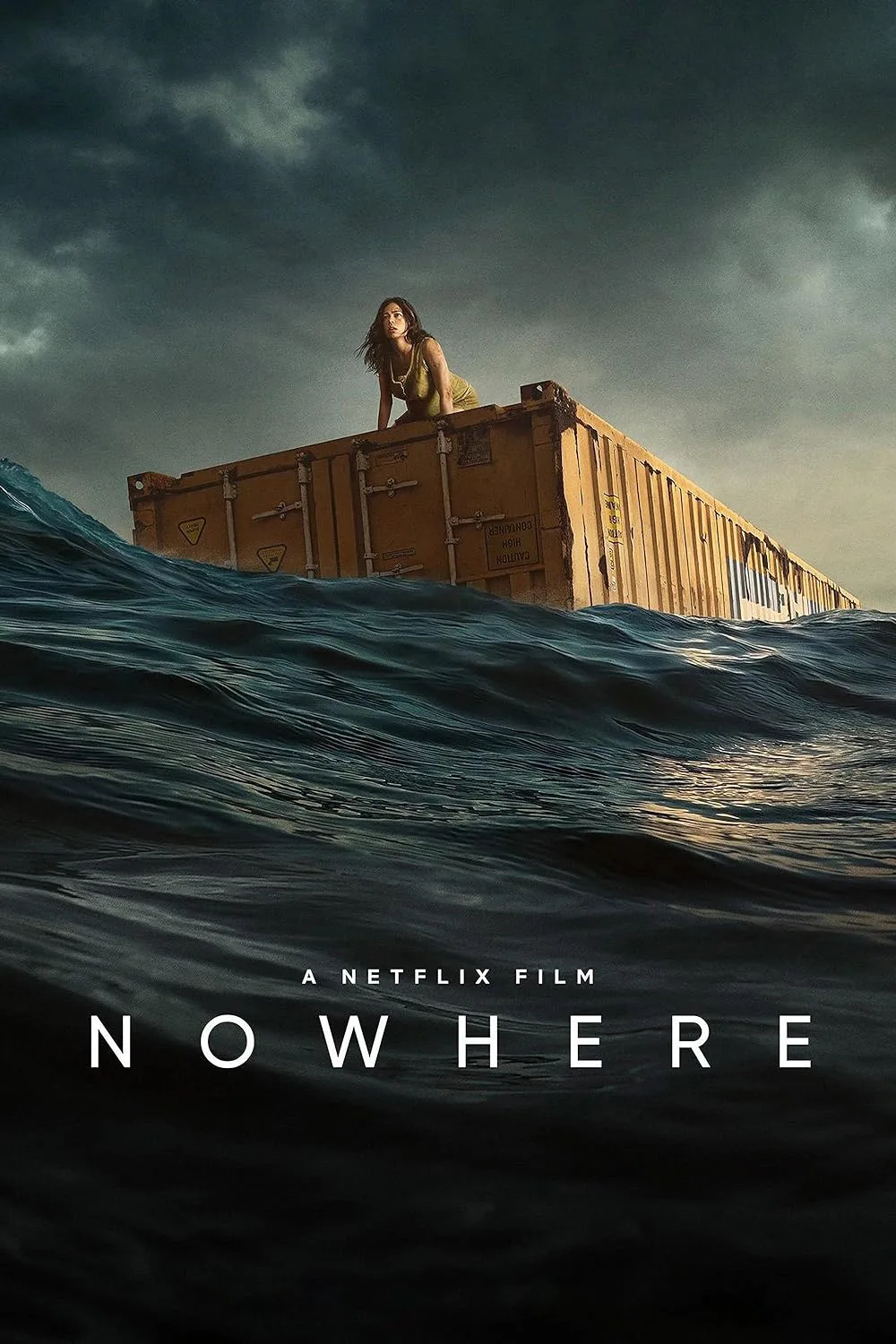“Nowhere,” the latest international Netflix thriller, takes a bit too long to find itself, and struggles with tone, but a committed performance by Anna Castillo keeps it from drifting off to the horizon. After a clunky prologue that chooses to place this refugee crisis in a dystopian future where women and children are being caged and murdered (instead of just actual refugee hotspots around the world in the 2020s), “Nowhere” becomes a single-setting, single-character survival story. Here’s where the movie almost works consistently, centering a woman who will do whatever it takes to keep herself and new newborn baby alive. There are some disappointing choices in the film’s directing, but Castillo’s performance should make a lot of those easy to overlook for anyone who stumbles upon this one in their streaming algorithm.
Castillo plays Mia, the very pregnant partner of Nico (Tamar Novas). We meet the couple already on the run from a country in a violent crisis. They hide from dogs and helicopter spotlights in a cargo yard before entering one of the shipping containers, bound for freedom. Of course, the journey doesn’t go well, and the couple ends up split up into two separate containers. Nico goes off to what looks like it will be a violent end while Mia is stuck with a bunch of strangers before their vessel is captured by soldiers, and, well, everyone but Mia ends up murdered. Before you know it, Mia is adrift in the ocean with few supplies and no way to get home. And then she goes into labor.
“Nowhere” is at its best when it’s at its most deliberate—Mia trying to pry open the roof, figuring out how to fish, etc. These easily relatable beats fit the most basic of survival tale tenets: Allowing us to ask ourselves how we would act in the same situation. Could we figure out how to survive for an unknown amount of time in the middle of nowhere? Would we just cry and wait for death? The added dynamic of a newborn child shifts the stakes from a traditional survivor’s story. Mia isn’t just trying to keep herself alive; she’s fighting for her baby, a fact made more poignant that she already lost a child before all of this drama started.
Director Albert Pinto gets everything from Castillo, an actress who first seems a bit overly mannered (it’s really just the bad dialogue of the opening scenes) but settles in nicely after she gives birth and becomes a force of survival instinct. The suspension of disbelief for a movie like this gets a nice elevation from the maternal hook. We’ve all heard those stories about mothers lifting cars to save their children. Castillo sells the idea that giving up isn’t an option more for her child than herself.
“Nowhere” has some clunky filmmaking, as with the container’s internal space, which I wish was better conveyed. There’s a version that’s more claustrophobic and sharp—where the interior doesn’t feel quite so much like a set—and some of the editing here is hyper when a stronger take would have longer shots and establish the time that Mia is stuck out there and the feeling of desperation. And it doesn’t help that “Nowhere” becomes repetitive over nearly two hours. I’m also not sure about where this film lands in terms of what it’s trying to say. It’s probably best to leave analysis of all the vague commentary on the refugee crisis aside and just appreciate “Nowhere” as a reminder of the power of a mother’s will to live. And to save.
On Netflix now.




















